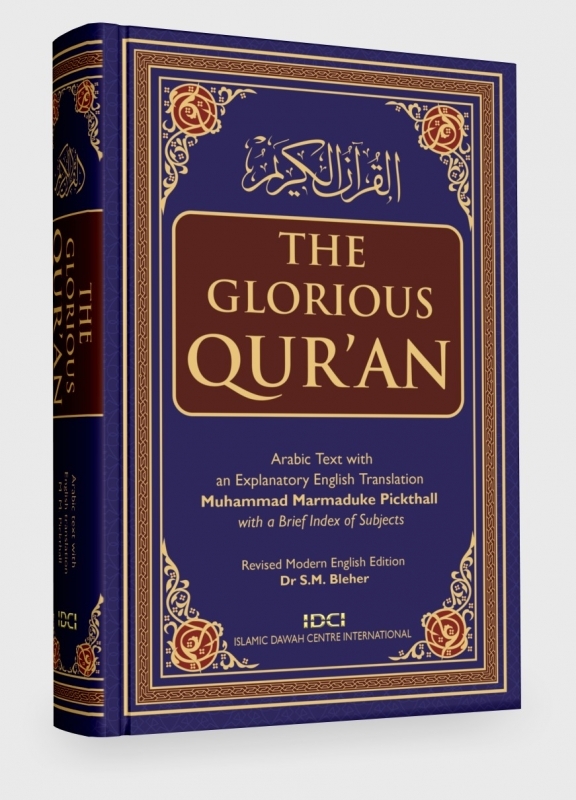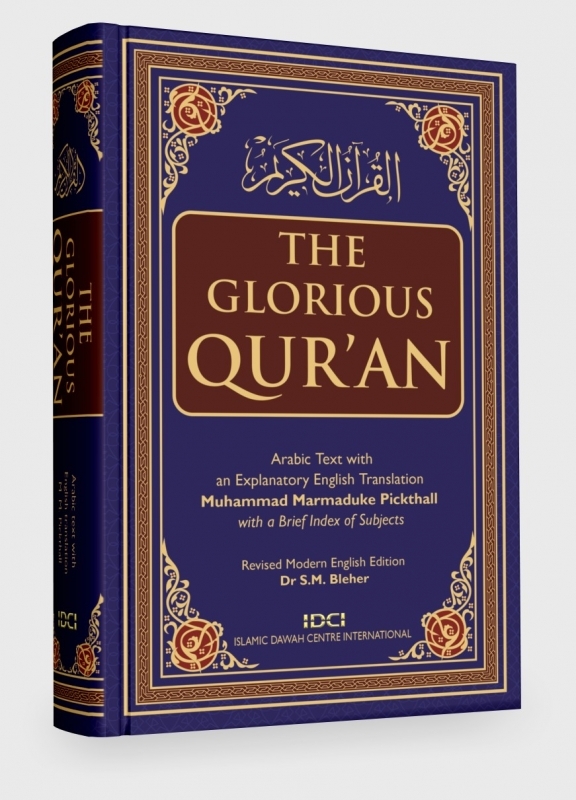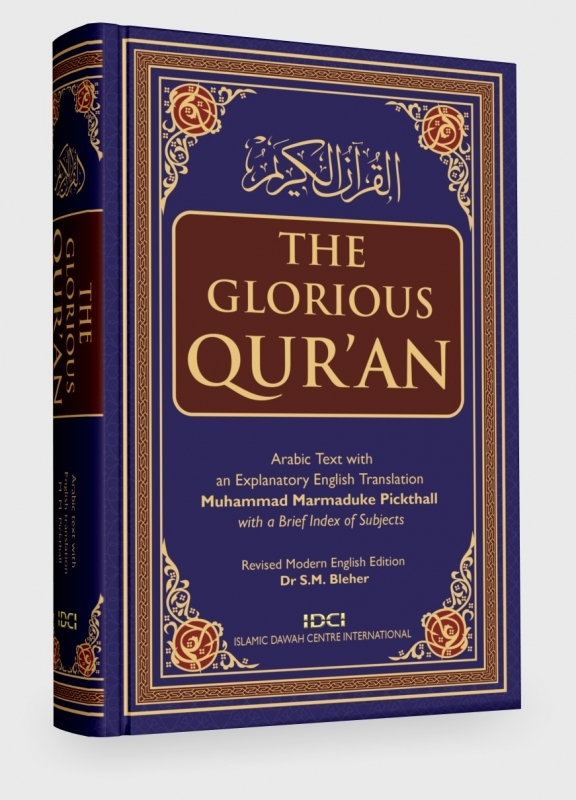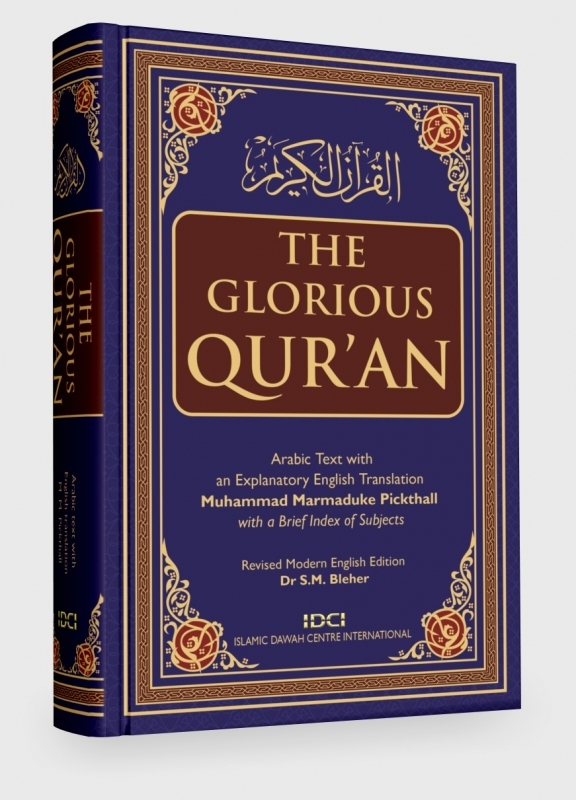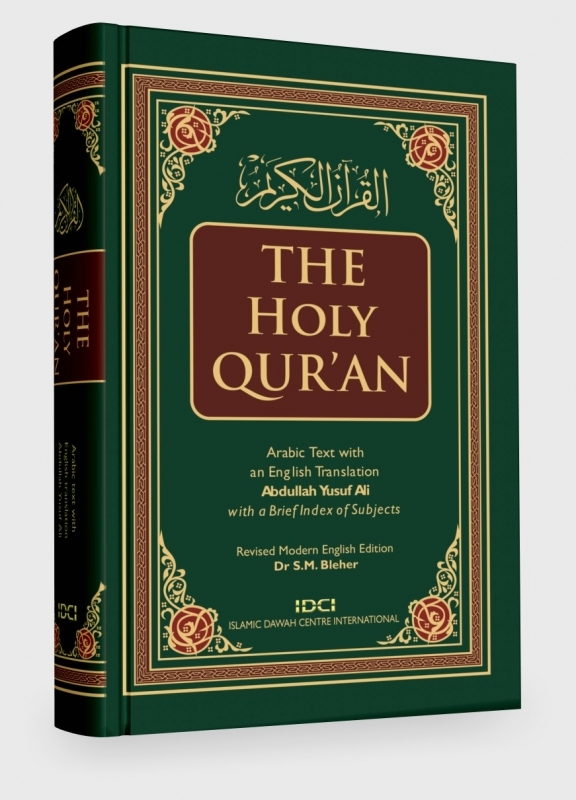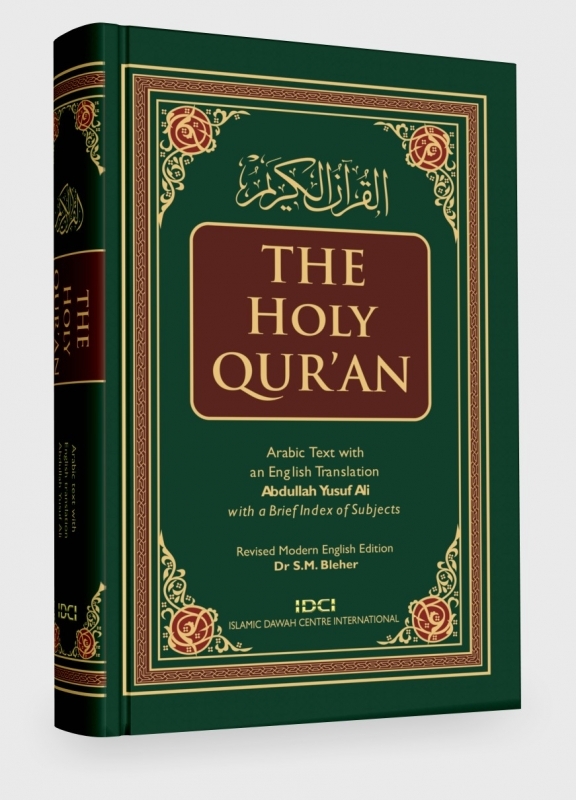
2014 EDITION - NOW WITH A BRIEF INDEX OF SUBJECTS
About the Qur'an
The Qur'an is no ordinary book. To
Muslims it is the eternal word of God (Allah), dictated to the prophet
Muhammad - peace be with him - via the angel Gabriel (Jibreel).
Originally revealed in Arabic, its style is unrivalled, its language
eloquent, its meaning deep. It is beyond any translation to render all
this richness of expression in another language. Yet, the Qur'an is
primarily a book of guidance and must, therefore, be accessible to those
who seek the truth contained in it. Whilst a translation cannot be an
authoritative replacement of the original, it can make the meaning of
its verses available to a non-Arabic speaking readership.
The verses (Ayahs) of the Qur'an were revealed throughout the 23 years of prophet Muhammad's prophethood, often in connection with events of the time. They were then memorised, recorded in writing, collected and arranged into chapters (Surahs). Within those verses we find narratives describing the creation of the world from earliest times or recounting the missions of earlier prophets, we come across general exhortation to belief and righteous conduct, we are given the tools and principles for reflection and sound judgement in a multitude of life's situations, and we receive detailed rulings on important aspects of criminal and civil law. Thus the Qur'an is not only a text of inspiration but also the foundation of the legal and social structure of Islamic society.
The text of the Qur'an has not changed since the days the prophet Muhammad - peace be with him - received this revelation, yet its content retains its relevance, validity and dynamics and continues to inspire believers of every generation as well as challenge the status quo of human society. The convincing observations of the Qur'an which, after all, are a communication from our Maker, are a powerful call to action and a rebuttal of complacency. They appeal to both the mind and the heart of the reader or listener, they call for justice and compassion, they decry and defy falsehood, pretence and oppression. They represent an uncomfortable truth for those who would like to banish the courage of one's conviction and do not want us to use our intellect and power of reflection to guide us along our path in life.
The verses (Ayahs) of the Qur'an were revealed throughout the 23 years of prophet Muhammad's prophethood, often in connection with events of the time. They were then memorised, recorded in writing, collected and arranged into chapters (Surahs). Within those verses we find narratives describing the creation of the world from earliest times or recounting the missions of earlier prophets, we come across general exhortation to belief and righteous conduct, we are given the tools and principles for reflection and sound judgement in a multitude of life's situations, and we receive detailed rulings on important aspects of criminal and civil law. Thus the Qur'an is not only a text of inspiration but also the foundation of the legal and social structure of Islamic society.
The text of the Qur'an has not changed since the days the prophet Muhammad - peace be with him - received this revelation, yet its content retains its relevance, validity and dynamics and continues to inspire believers of every generation as well as challenge the status quo of human society. The convincing observations of the Qur'an which, after all, are a communication from our Maker, are a powerful call to action and a rebuttal of complacency. They appeal to both the mind and the heart of the reader or listener, they call for justice and compassion, they decry and defy falsehood, pretence and oppression. They represent an uncomfortable truth for those who would like to banish the courage of one's conviction and do not want us to use our intellect and power of reflection to guide us along our path in life.
About the Translator
On April 4, 1872 A.C. 1289 A.H., �Abdullah Yusuf �Ali was born in a family of the Sunni Bohra community in Surat, India. His father, a merchant, was a very religious man who made sure that his son learned the Qur�an before anything else. Upon the completion of young �Abdullah�s committing the entire Qur�an to memory, his father celebrated the occasion with a grand banquet, thus showing to his son the importance of his achievement and if the importance of the Qur�an. In addition to studying contemporary knowledge at school, he continued to receive lessons in Arabic language and never ceased in his studies of the Qur�an. He was a superior student who excelled in academic achievement and won the much coveted Indian Civil Service Award, a prestigious honour resulting from the extremely competitive entrance examinations for high positions in the Indian Civil Service which wealthy families would aspire for their sons to receive.
He was easily able to absorb English Literature and was considered to be among the best of his fellow countrymen in writing English. Many of the most well-known scholarly magazines in India published his works and expressed their appreciation for his beautiful literary style. Later he left India for Europe and visited many European capitals and eventually resided in London for a considerable period of time. While in London, he was exposed to many translations of the Qur�an and continued to have a tremendous interest in it and its studies. He then began to closely study the Qur�an giving special attention to its various interpretations, both old and new. After studying what was written about the Qur�an in both European and Eastern languages, he returned to India and took up new residence in Lahore where he became the Dean of the Islamic College. He then began his monumental work of translating and commenting on the Qur�an which after many years of work was completed on his 65th birthday. �Abdullah Yusuf �Ali later died in London on December 10. 1953 A.C.1372 A.H.
Reviews
Coming soon...
Additional Informations
Coming soon...
Also Purchased
Below are a few additional products purchased with this product.

